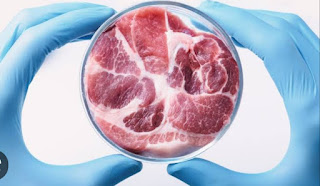Meat's Importance in Diets
Meat has been a staple food in human diets for thousands of years, and it continues to be an important source of nutrients and energy for many people around the world. While some people choose to follow a vegetarian or vegan diet for ethical, environmental, or health reasons, for those who do eat meat, it can provide a range of essential nutrients that are difficult to obtain from plant-based foods alone. In this blog post, we'll explore the important role that meat plays in our diets and why it's important to include it in our meals.
Protein
Meat is a rich source of protein, a macronutrient that is essential for building and repairing tissues, making enzymes and hormones, and supporting immune function. Protein is made up of amino acids, and there are nine essential amino acids that our bodies cannot produce on their own and must obtain from food. Animal-based protein sources, such as meat, eggs, and dairy products, are considered "complete" proteins because they contain all nine essential amino acids in the right proportions. While plant-based sources of protein, such as legumes, grains, and nuts, can also provide all of the essential amino acids, it can be more difficult to get enough of certain amino acids, especially for people who follow a vegan or vegetarian diet.
Iron
Another important nutrient found in meat is iron. Iron is a mineral that is essential for the production of red blood cells, which carry oxygen throughout the body. There are two types of dietary iron: heme iron and non-heme iron Heme iron is more easily absorbed by the body than non-heme iron, which means that people who eat meat are more likely to meet their daily iron requirements than those who don't. Iron deficiency is common, particularly among women and children, and can lead to anemia, fatigue, and other health problems.
Vitamin B12
Meat is also an important source of vitamin B12, a nutrient that is essential for nerve function and the production of red blood cells. Vitamin B12 is found almost exclusively in animal-based foods, so people who follow a vegan or vegetarian diet are at risk of deficiency if they don't supplement or consume fortified foods. Vitamin B12 deficiency can lead to fatigue, weakness, and neurological problems.
Other Nutrients
In addition to protein, iron, and vitamin B12, meat is also a good source of other important nutrients, such as zinc, selenium, and vitamin D. Zinc is essential for immune function, wound healing, and DNA synthesis, while selenium is important for thyroid function and antioxidant defense. Vitamin D is necessary for strong bones and teeth, and many people don't get enough of it from sunlight exposure alone.
It's worth noting that not all types of meat are equally nutritious. Lean meats, such as chicken and turkey breast, are lower in saturated fat and calories than fattier cuts of meat, such as beef and pork. Processed meats, such as sausage, bacon, and deli meats, are often high in sodium and preservatives and have been linked to an increased risk of certain health problems, such as heart disease and cancer. Therefore, it's important to choose high-quality, minimally processed meats and to consume them in moderation as part of a balanced diet.
In conclusion, while it is possible to obtain many essential nutrients from plant-based sources, meat can be an important part of a healthy and balanced diet for those who choose to eat it. Meat provides high-quality protein, heme iron, vitamin B12, and other essential nutrients that can be difficult to obtain from plant-based foods alone. However, it's important to choose lean, minimally processed meats and to consume them in moderation as part of a varied diet that includes










Comments
Post a Comment